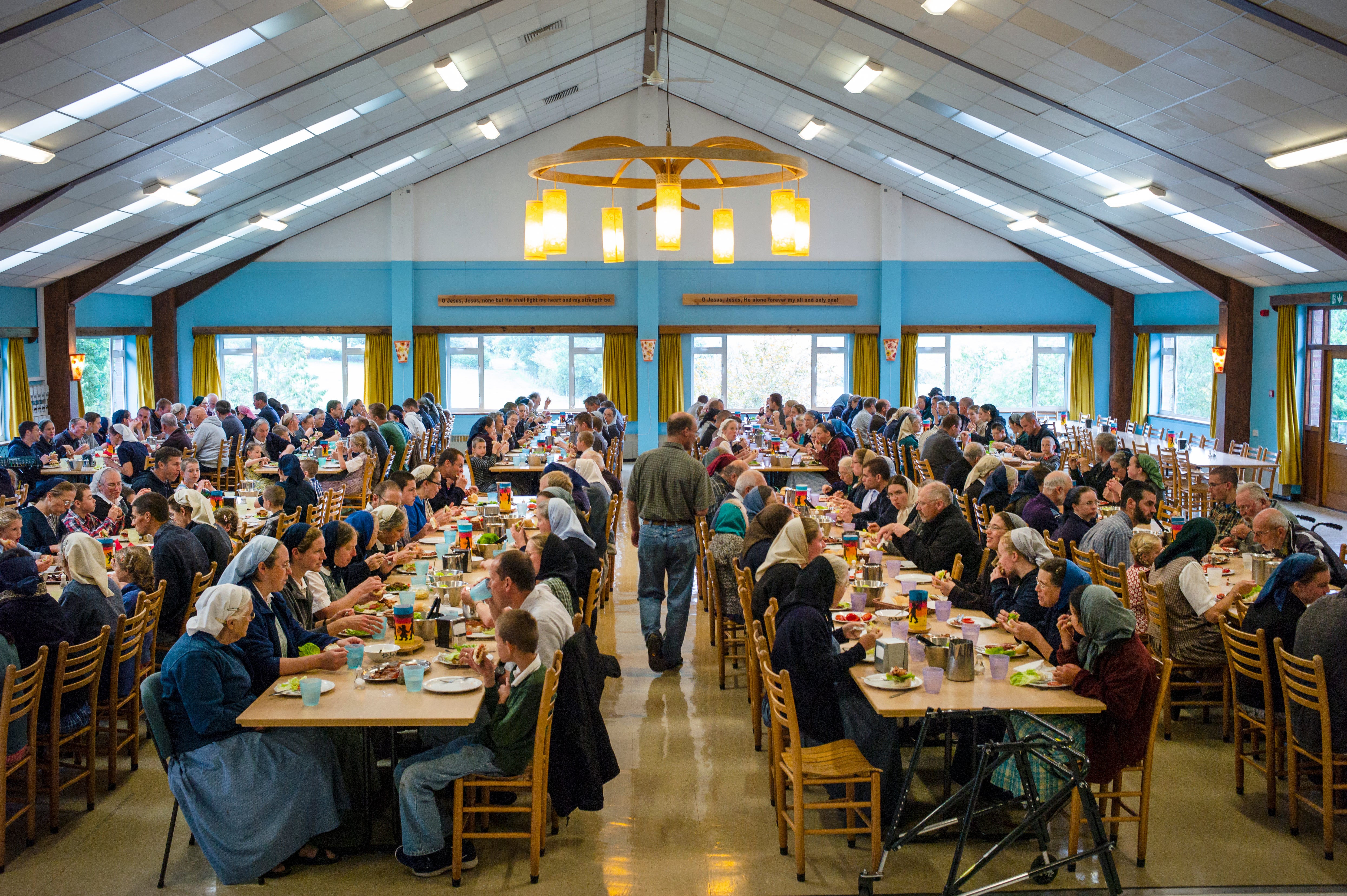Inside the secret Home Counties commune that preaches celibacy and hard labour to Gen Z
In a picturesque Sussex village, a century-old Christian commune is quietly attracting young people turned off by the prospect of modern society. Hatty Willmoth spent a week among the 300 worshippers who dress modestly, make wooden toys for a living and have a tendency to break into song


Your support helps us to tell the story
From reproductive rights to climate change to Big Tech, The Independent is on the ground when the story is developing. Whether it's investigating the financials of Elon Musk's pro-Trump PAC or producing our latest documentary, 'The A Word', which shines a light on the American women fighting for reproductive rights, we know how important it is to parse out the facts from the messaging.
At such a critical moment in US history, we need reporters on the ground. Your donation allows us to keep sending journalists to speak to both sides of the story.
The Independent is trusted by Americans across the entire political spectrum. And unlike many other quality news outlets, we choose not to lock Americans out of our reporting and analysis with paywalls. We believe quality journalism should be available to everyone, paid for by those who can afford it.
Your support makes all the difference.As every Gen Z-er knows, adulthood sucks. The moment we enter the workforce, we discover our jobs are underpaid and exhausting. We’re tired, broke and lonely. Some of us dream of moving to the countryside with our favourite people to grow vegetables, bake bread, keep animals and escape the shackles of capitalism.
Modern life? It’s enough to make you want to run away and join a commune. So I did – and I lasted a week.
Darvell is a self-contained village in rural East Sussex, between Hastings and Tunbridge Wells, where members eat communally, sing in harmony and share everything. A 300-person “intentional community”, it’s part of a century-old network of Christian communities called the Bruderhof, which operates in North and South America, Europe, Australia and South Korea. And it’s disproportionately popular with Zoomers.
I assumed these religious devotees would be like a British version of the Amish – but they’re not. That’s clear when I’m met at Robertsbridge station by Bruderhof member Simon Mason, 28: an ordinary looking man driving quite a nice car.
The car isn’t his. Like everything at Darvell, it’s owned by the community. Vehicles are leased out to those who request them, while smaller items are kept by individuals.
Simon drives me to Darvell, which is marked with a sign saying “Community Playthings”, the name of their main business venture. The Bruderhof makes furniture and toys for schools and nurseries.
We drive further down a winding valley path, past trees, a stream, an orchard – until we reach a little gravelled car park. It’s a crisp sunny day, and Darvell proper looks so green: grass, paths, and a few large brick buildings, on a hillside surrounded by fields.
Simon’s wife, Veronica, 28, shakes my hand warmly. She’s wearing a long floral skirt and button-up shirt. (Disciples are required to stick to “modest and respectful” dress – because, as the community’s website says, the Bruderhof wants to “avoid clothing that indicates status or wealth as well as anything provocative or sexualised, because Jesus commands us to be pure in heart, soul, and body”.) This is the modest cottagecore vibe I was expecting.
My room is in the laundry building along a long yellow corridor. It looks like student accommodation – except there’s no lock on the door. Simon and Veronica’s building is a similar set-up: long corridors, shared bathrooms and kitchens, individual living rooms and bedrooms. Many of the doors are left wide open.
Before long, almost the whole community gathers in a hall for lunch, at long tables like a canteen. I’m with Simon, Veronica, and Simon’s grandmother and aunt. A man talks into a microphone. He says that a funeral will be live-streamed from a US community this evening.
Then he announces a song – and the room bursts into four-part harmony. I get goosebumps. Veronica whispers to me that Bruderhof children learn to sing as soon as they can talk.
A quick prayer is said, and then we eat – for 20 minutes, before everybody starts clearing away and cleaning like a well-oiled machine, while I’m still eating my frittata.
There’s a short break before it’s time for work. I spend a great deal of the next few days in the Darvell kitchen, chopping cabbages and dicing pork for communal lunches, cleaning with Veronica. (It’s the womenfolk who are called upon to cook, clean and do laundry.) When it comes to caring duties, things are more equal across the sexes. Both men and women look after the community’s elderly and disabled members, who are integrated into everything the community does.
On Monday evening, I attend the live-streamed funeral, together with thousands of Bruderhof members across the world who all seem to know, or know of, the woman who died and her family. The Bruderhof celebrates together, as a tight-knit international group: births, weddings, anniversaries and funerals.
After the service, I eat at Simon and Veronica’s – then spend the evening in someone else’s living room with a multigenerational group of adults.
I am woken early the next morning by the sounds of children playing in my building; a noise which becomes my alarm clock. The Bruderhof are early risers and hard workers. So much effort goes into keeping this place running – I’m exhausted simply trying to keep up. I’m also overwhelmed with culture shock.
It doesn’t help that I’m developing a cold. “Ah, yes,” people say when I admit this. “We share everything here, including germs!”
At least the women I work with look after me. The professional and domestic are blurred here; there are no bosses, managers or corporate acquaintances – and no one works for money. You work with, and to directly benefit, your family and friends.
I come to appreciate a woman who cooks for those with dietary requirements – including me. A professionally trained chef, she makes 20 different meals a day, while the rest of the kitchen makes lunch in bulk. Her cooking feels like a personal kindness.
When I’m not being put to work, I go exploring. I visit the factory and farm, where they grow vegetables regeneratively, keep animals for meat, eggs and dairy and generate energy with solar panels. In the food basement and laundry, everything functions collectively – so families just retrieve shopping and clothes from labelled shelves.
The school has a curriculum that’s less religious and more creative than I expected, with pottery, cooking, knitting, woodwork and plenty of playing in the woods. There’s a medical clinic with a suite for postnatal care and a publishing house, too.
On the Friday, feeling poorly, I go for a walk by myself. I say “hi” to all the animals before clambering over gates and fences, through fields and woodland, up a hill and back past greenhouses. It’s glorious.
That evening, after a communal dinner, Simon and Veronica take me to a Robertsbridge pub, where they go each Friday and know everybody. The locals all speak fondly of the Bruderhof.
“They’re good people,” one man tells me, enthusiastically. “It’s not a cult. They’ve done a lot for this village.”
The Bruderhof are aware of how insular communal life can be. Members have everything they need on site, so it’s easy to stay in Darvell. But others are on local football teams, go to knitting clubs and coffee mornings and explore Sussex at the weekends.
Most residents here have experienced life outside the community. Bruderhof children are encouraged only to pursue membership in adulthood if they feel it’s what God wants.
The week I spent there, Darvell’s Gen Z population were mostly away – at boarding school, university, or gaining their first tastes of adult life. So I met up later with some of them – students – in a London pub.
One of them told me, earnestly, that the Bruderhof offered everything that young people longed for: belonging, purpose, something to work towards, support and friendship.
Not all the young adults at Darvell are blissfully happy. One woman tells me she misses the crowds and coffee shops of Berlin, where she studied. Another says she misses home, having moved here from an American community. The Bruderhof often asks members to relocate to a different commune if their skills are more needed elsewhere.
Someone else says, as an introvert, she sometimes feels overwhelmed by all the people, preferring her own space and privacy. Even Simon says he struggles with the loss of autonomy that comes with living here – and would move elsewhere if it wasn’t for his faith, which keeps him at Darvell.
Bruderhof members believe this community helps them to live out Christ’s teachings, free from money, possessions and hierarchies, looking after each other and giving to charity. I found some of their religious views challenging, particularly about sexual purity, homosexuality, marriage and gender.
But the set-up was less problematic than I expected. There’s no single leader, members maintain good relationships with outsiders, people freely express differing opinions, those who leave are supported, and there are almost no written rules.
The glue that sticks this group together is their shared faith. No one I speak to thinks it would function without it.
Darvell is the least lonely place I’ve ever been; constantly social in a way that I found both uplifting and exhausting. Who needs to spend an evening doomscrolling (all of the Gen Z devotees have smartphones, and there's even a Darvell Netflix account) when you’ve got one another?
Join our commenting forum
Join thought-provoking conversations, follow other Independent readers and see their replies
Comments